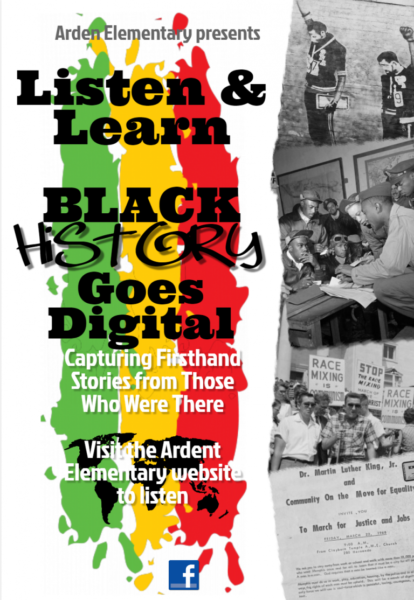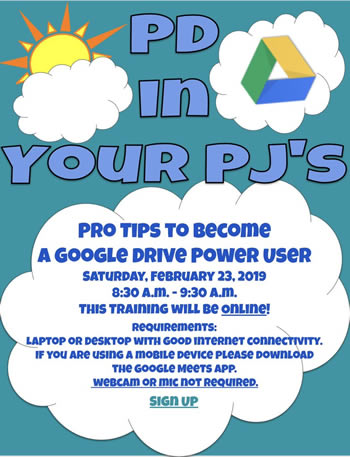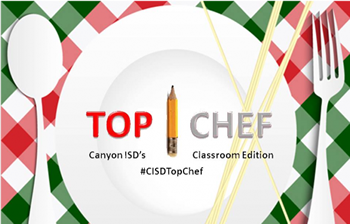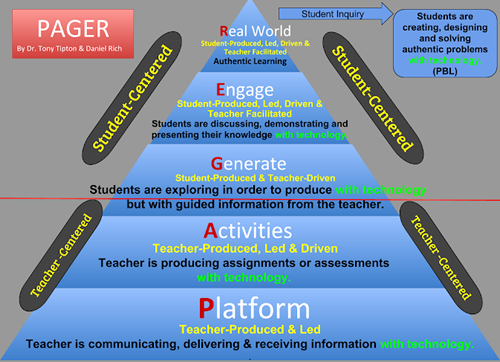[Editor’s Note: This article was first published on the TCEA TechNotes blog.]
“Toot your own horn,” my dad often advised me. “The squeaky gate gets the oil.” The advice to self-aggrandize often went against my shy nature. As a school or district leader, don’t let your shyness stop you from sharing successful stories, especially those that include the use of academic technology. In this blog entry, we’ll explore five ways you can promote and share successful edtech success.
Related: 8 easy ways to improve your public relations efforts
#1 – Create posters and infographics
Make an infographic that captures ways students are creating and sharing works. You can make impactful infographics using PosterMyWall, a free infographic maker. Or take advantage of some of these free infographics.
“Digital stories are multimedia movies that combine photographs, video, animation, sound, music, text, and often a narrative voice. Digital stories may be used as an expressive medium within the classroom to integrate subject matter with extant knowledge and skills from across the ” (Source).
Here’s one idea on capturing and sharing digital stories from people who were there. The poster is adapted from this source.

You can print these infographics or posters on walls, in teachers’ lounges. Don’t be afraid to brighten a restroom stall with a three-step tutorial on an ed tech topic of choice.
#2 – Connect the physical space to the virtual
Libraries represent literacy. What space in your school does the same for edtech-powered learning? This might be an office or space educators can get quick help on creating with technology. It may be a place they read technology-related websites and/or view short video tutorials. Yes, they could find this anywhere, but physical space sends a message. The message? Learning edtech has a tangible impact. Combine a physical space with online professional learning. Advertise upcoming PD in Your Pajamas, as Sharyland (TX) Independent School District (ISD)’s Alfonso Mendoza, Jr. (@SharylandEdTech) has done.

You can use tools like Certify’em or Autocrat to create digital certificates for both face to face and virtual professional learning opportunities, including self-paced ones.
You can set up an old fridge box or large appliance box as a video station. This could be a green screen room or a place where teachers and students use video apps. They can conduct interviews about technology innovation lessons. Have them reflect on a successful project they have participated in. Then share those video creations via social media.
#3 – Compete for prizes
I didn’t appreciate the power of contests and prizes until I tried out Kahoot and Goosechase. Teachers, as well as their students, can do awesome things when motivated.
One motivation may be a STEAM contest for a grade level. Check out this fun Facebook post from Joy Freeman Schwartz, TCEA area director. She writes (adapted for length):
“Congratulations to Blanchette Elementary’s 3rd graders. They won the 2nd District STEM Challenge (design and Create Santa a new sleigh)! Thank you, Sebrina Dollar, for allowing them take part!! Great job and super sweet students!!”
Prizes for students can be inexpensive. Prizes for teachers can be simple, such as a lottery ticket or a “jeans day” pass. And, of course, ask local businesses for coupons.
#4 – Get sponsors to celebrate projects
Work with your regional education service centers and organizations to highlight success. You can invite local businesses in the community to celebrate technology projects. These could be projects students have made or clever idea from teachers. For example, create a Top Chef program such as what TCEA member Debbie Boyer did for her school district.

Invite sponsors to offer prizes and deliver those in person. What a great photo opportunity for the district and the sponsor(s). More important than that, students and teachers see their work valued.
#5 – Launch a digital badge program for edtech success
Adopt a technology framework, like Dr. Tony Tipton’s and Daniel Rich’s PAGER Model. The PAGER model makes use of all the key elements required for inquiry-based learning. Those include real world authentic learning and engaged student-produced, teacher-facilitated activities. Learn more about it online.

Take that model and go one step further. Follow in the footsteps of Van ISD’s “Bold School Badging” program. Their vision is to focus teachers’ attention on impacting student learning. How? Focus on student-centered learning. Educators earn badges as they complete professional development and receive incentives.
Don’t be afraid to “toot your own horn!” Celebrate the exciting work teachers and students are doing. Use these approaches to promote and share campus successes.
- Redesigning the educational model after COVID - May 13, 2024
- Beyond the visible: Recognizing and accommodating invisible disabilities - May 13, 2024
- How school leaders can manage and control emotions - May 10, 2024

